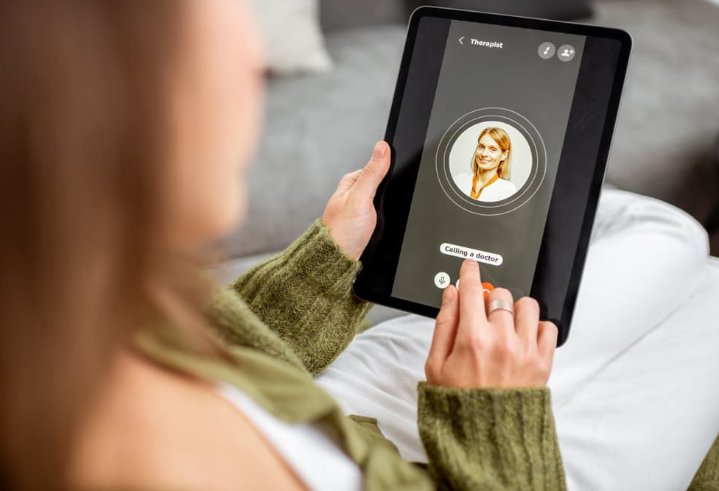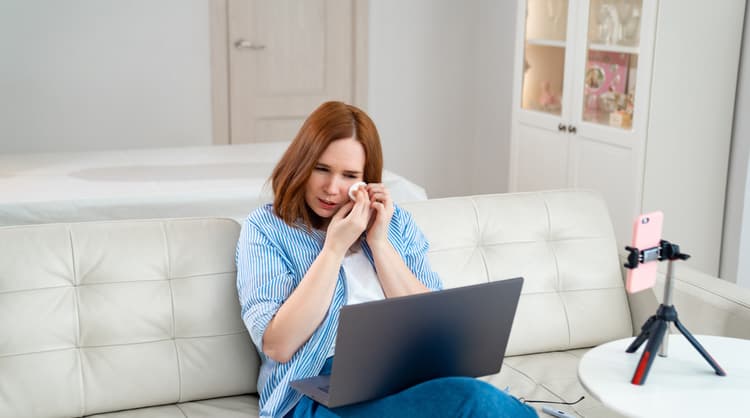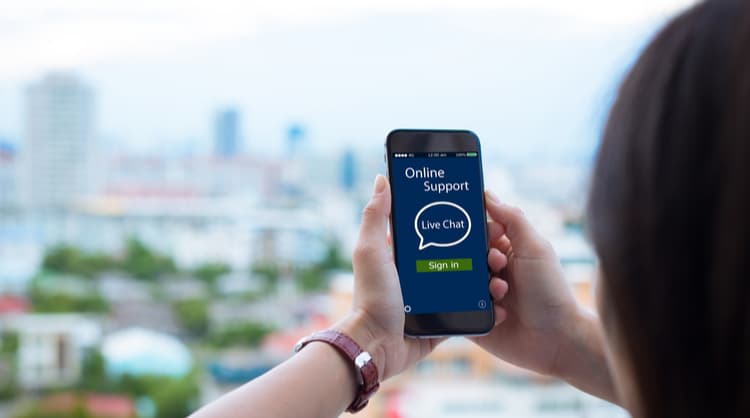How the counselling profession is adapting to the world of technology

Counselling has and continues to play a vital role in Australia’s community services sector, with the industry only set to skyrocket in the few years to 2023. According to Job Outlook, the profession should expect a sharp leap from 25,900 workers in 2018 – to 30,500 in 2023.
Given the rise of mental health awareness, and the studies that point to one in five Australians (aged 16-85) bound to experience mental illness at one point or another; these statistics aren’t all too surprising. What is news, however – is the rising trend of online therapy and virtual counselling, particularly during the current spread of COVID-19 cases.
SkillsTalk dive into the impacts of the current pandemic on Australians’ mental health, the growing popularity of online therapy, and how you can benefit from these digital services.
The rise of online therapy

Also known as “eTherapy”, the origins of the service can be traced back to as early as 1982, when self-groups first began emerging on the internet.
Today, there are multiple sites and mobile apps that offer extensive mental health information; on top of private, online counselling sessions. The growing trend has led to the forming of the International Society for Mental Health Online, a global community dedicated to providing mental health services over the internet.
Like traditional counselling, eTherapy involves interacting with a licensed therapist – except through the use of digital tools and platforms, including video-conferencing programs (i.e. Zoom or Skype), mobile communication (i.e. a laptop or smartphone), or online texting apps (i.e. Messenger or e-mail).
This innovative industry has proven successful in Australia through its high accessibility – as about 87% of the population are active internet users, as well as 18.44 million being smartphone users.
Such platforms are relatively user-friendly across demographics; though younger people are typically assumed to benefit most from services (due to being “digital natives”), online therapy has been shown to benefit older people just as well.
Some of the biggest names of eTherapy today include BetterHelp, Regain, and Talkspace, among others. Due to their remote service, these services tend to be more affordable, and are often placed on a payment plan that allows users to cancel at any time.
The COVID-19 pandemic and mental health
So, how does our current global crisis play a role in all of this?
With the entire country on lockdown (and approaching the halfway point of the three-month quarantine), the nation has experienced a gradual increase in anxiety and loneliness. Social isolation has begun taking its toll, and Australians are struggling with their mental health more than ever.
In fact, a study found that residents reported being depressed, anxious, or stressed up to five times more than they were before the pandemic.
Reports also show a rising trend in turning to the internet for coping tips; with the subject being the most searched on Google for the past eight weeks in the country. Following this are searches on social isolation, social distancing, lockdown, and other related topics – along with searches on “stress-related symptoms” increasing by a whopping 4500%.
As such, plenty of people have begun turning to online therapy to aid them during this time of panic. The CEO of Online Therapy, Carl Nordstrom, reported a 30% increase in new clients as anxieties continue to rise. Popular mobile therapy service, Talkspace, have also seen a 10% growth in requests since mid-February, with numbers on a continual climb.
As social distancing prohibits those who regularly seek out traditional therapy, the multitude of online alternatives have proven to be an effective substitution.
So… does online therapy work?
Numerous studies point to “yes”.
The platform may not be a “one-size-fits-all”, but online therapy has received massive support among patients and the general counselling sector in recent years.
According to studies published in the World Journal of Psychiatry, those who have received therapy through video-conferencing reported “high levels of satisfaction”. Another study (in 2016) further reported the greater outcomes among patients who underwent online cognitive-behavioural therapy (CBT), compared those who pursued its traditional counterpart. On top of this, patients generally found online CBT to be a more “affordable” health option.
Additionally, 2017 research has seen effectiveness in online therapy in the treatment of multiple health issues – a benefit for those living in rural areas where mental health support and services may be limited.
Experts also mention the advantage of “disinhibition” among those involved with online therapy, as people often feel more comfortable opening up and discussing issues when interacting over the internet.
Positive relationships have also been documented between online therapists and their clients. In an interview for 9Honey, Jo Abi shares her experience with the online therapy app, Talkspace – and how it felt like “chatting to a knowledgeable best friend”, with the flexibility of being able to tune into the app and discuss her feelings whenever it suited.
The ability to look back on previous text discussions was also a massive assistance, providing Abi with an additional resource for self-reflection and analysis.
Why use online therapy?

On top of acclaimed effectiveness, online therapy has benefited patients with its high accessibility, flexibility, and privacy.
As mentioned, its remote features enable those of rural areas or distant locations to access the mental health support they need, regardless of geography. All that’s required is a desktop, laptop, or smart device with a stable internet connection.
Its online structure also removes the costs and effort of travel, providing those with strict personal and professional commitments with the flexibility to access consultations according to their schedule. This can help those who may be attending traditional sessions in conjunction; as the occasional inability to attend an appointment can simply be substituted for an online session.
Additionally, its online nature allows clients to maintain their privacy, as some seeking therapy may still be concerned with the social stigmas attached.
Online counselling, however, allows access to such services without having to visit a physical centre – eliminating the anxiety of being seen by others in the waiting room, or simply those outside of the clinic.
Finally, patients benefit from the wide selection of communication options. Those comfortable with simulating a “traditional environment” can opt for online or video calls; while those who prefer written e-mails or online chats, can rely on these instead.
Online counselling is here to stay
With its convenient options, range of choice, and high satisfaction rates – eTherapy has disrupted the counselling industry for the better.
As the stigma on mental illness continues to fall, related support services will increasingly gain prominence.
Recent initiatives have been taken, however, to enhance its accessibility across demographics; and online mental health services are leading the movement.
For those looking to join the dynamic world of counselling, Upskilled offers a two-year CHC51015 - Diploma of Counselling course that dives into the ethics, management, interpersonal, and therapeutic skills that comprise the profession. Learn to establish productive, communicative relationships with clients; response methods to crisis situations; and intervention skills, among others – equipping you for a rewarding career path in the industry.
Best of all, the program is delivered 100% online, helping you tailor your study according to personal needs and commitments.
Start your journey in counselling, and enquire with Upskilled’s education consultants today.


)
)

